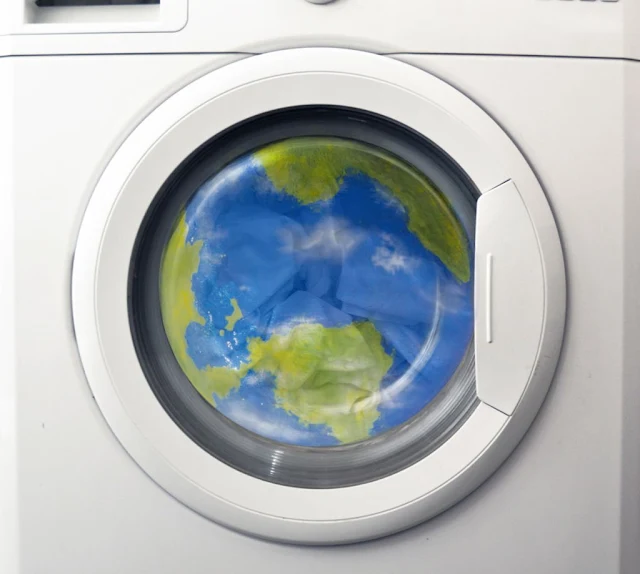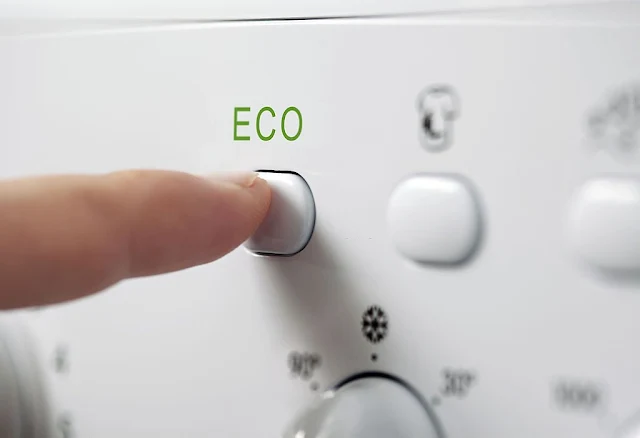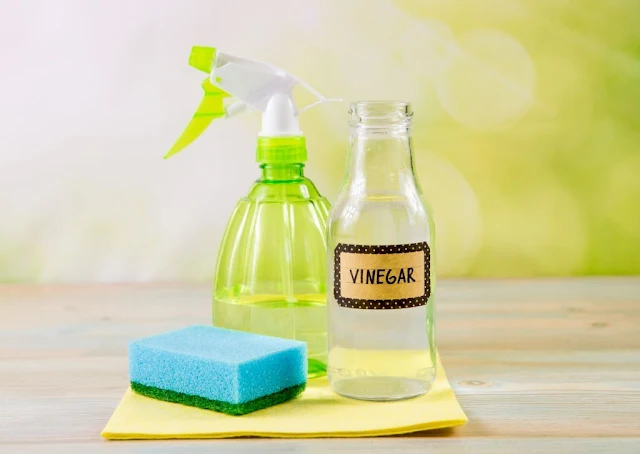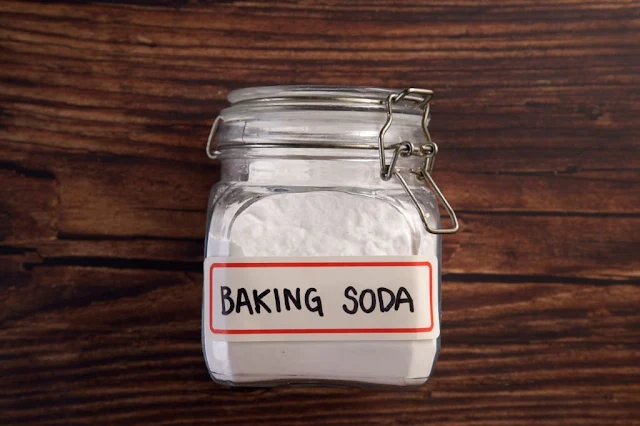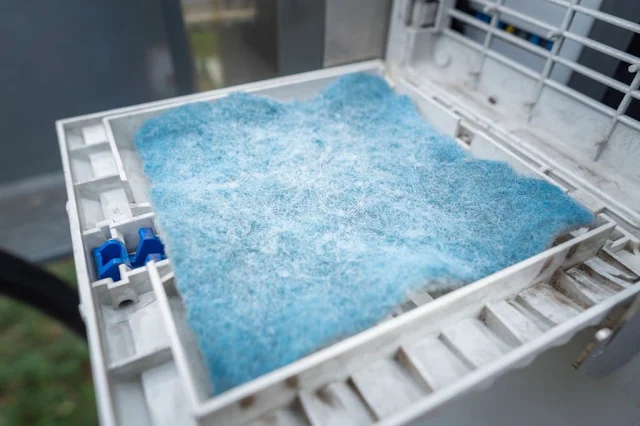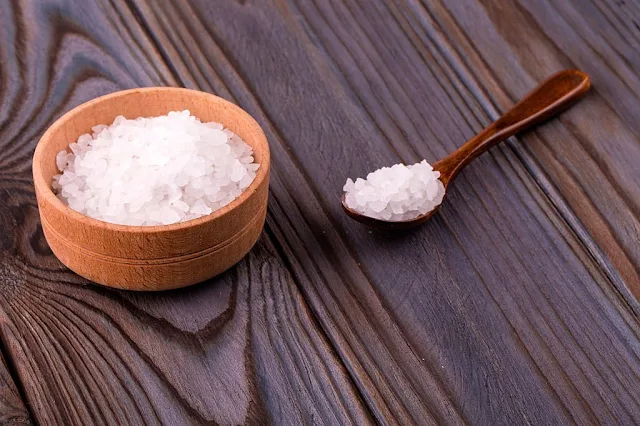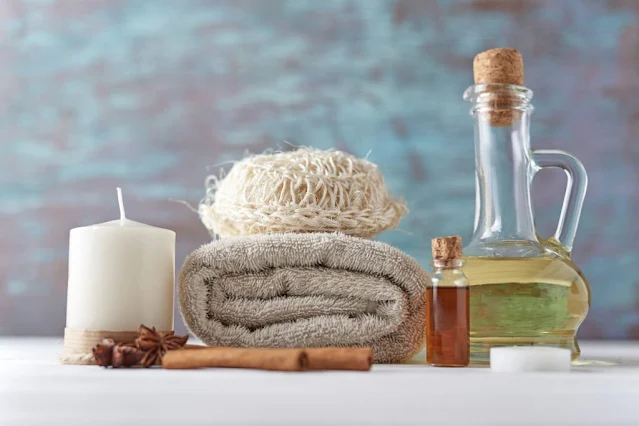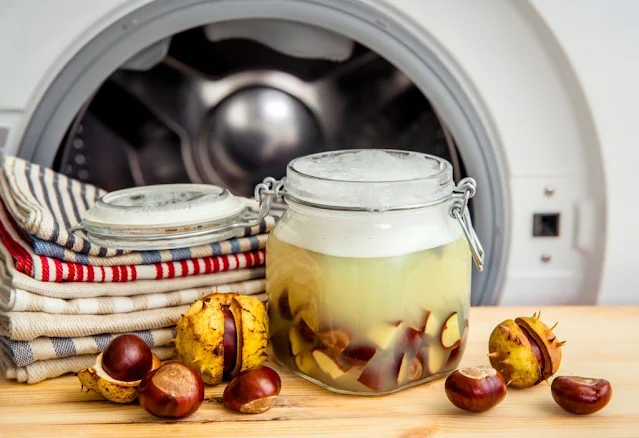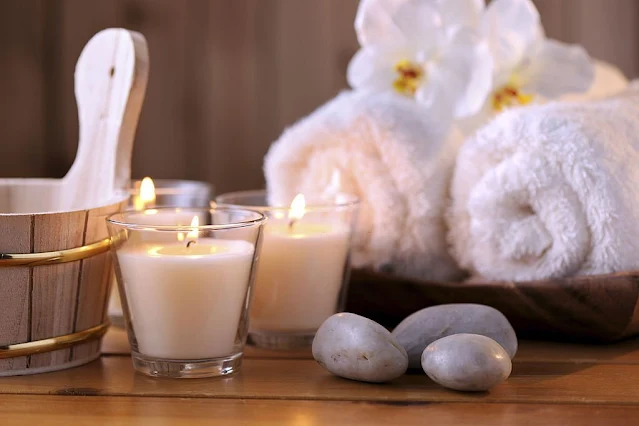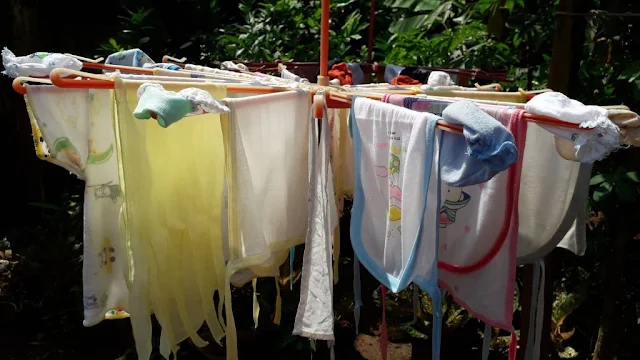When it comes to doing laundry, fabric softeners have been a popular choice for years, but did you know that there are natural alternatives that not only help soften your clothes but also have a positive impact on the environment? In this article, we will explore the world of eco-friendly fabric softener alternatives that will leave your clothes feeling soft, fresh, and clean without harming the planet. Let's delve into these sustainable options for a greener laundry routine.
Understanding the Downside of Conventional Fabric Softeners
Traditional fabric softeners often contain a myriad of chemicals, synthetic fragrances, and artificial additives. While they may make your clothes feel softer and reduce static cling, they can also leave behind residues on fabrics and release harmful substances into the environment during the washing process. Additionally, the artificial fragrances can cause skin irritations for those with sensitivities, making them less than ideal for individuals with allergies or eczema.
The Rise of Eco-Friendly Laundry Practices
As more people become conscious of their environmental footprint, eco-friendly laundry practices have gained popularity. Switching to natural alternatives for fabric softeners is an essential step in reducing our impact on the planet. Let's explore some fantastic options that will not only take care of your clothes but also take care of the Earth.
The Rise of Eco-Friendly Laundry Practices
In recent years, there has been a significant rise in the adoption of eco-friendly laundry practices as more people become conscious of their environmental impact. With the growing concern about the harmful effects of conventional laundry products on the planet, individuals are actively seeking natural and sustainable alternatives. This shift towards eco-friendly laundry not only benefits the environment but also ensures cleaner and safer laundry routines for households. Let's explore the reasons behind the rise of eco-friendly laundry practices and the best natural alternatives for a greener wash.
Environmental Concerns Drive Change
One of the main drivers behind the surge in eco-friendly laundry practices is the increasing awareness of environmental issues. Traditional laundry detergents and fabric softeners often contain harsh chemicals and synthetic additives that can be harmful to aquatic life and contribute to water pollution. Moreover, the packaging of these products generates substantial plastic waste that ends up in landfills or oceans, causing long-term damage to the ecosystem. As consumers become more informed about these environmental consequences, they are seeking sustainable alternatives to reduce their ecological footprint.
Health Benefits for Families
Beyond the environmental impact, eco-friendly laundry practices offer health benefits for families. Conventional laundry products can contain allergens, irritants, and artificial fragrances that may trigger allergies or skin sensitivities in some individuals, especially those with respiratory conditions or skin disorders. By switching to natural alternatives, families can create a safer and healthier living environment, free from potentially harmful chemicals.
Cost-Effectiveness and Savings
While some may assume that eco-friendly laundry practices come with a higher price tag, the reality is quite the opposite. Many natural alternatives, such as vinegar, baking soda, and soap nuts, are budget-friendly and cost-effective. Additionally, certain eco-friendly practices, like air-drying clothes, can help save energy and reduce electricity bills. As consumers realize the cost-saving potential of these eco-friendly solutions, their popularity continues to grow.
Embracing DIY and Homemade Solutions
The trend towards eco-friendly laundry is accompanied by a growing interest in do-it-yourself (DIY) and homemade solutions. Individuals are discovering the satisfaction of creating their own laundry detergents, fabric softeners, and stain removers using simple and natural ingredients. This DIY approach not only empowers consumers to control the substances they use but also allows them to customize scents and formulas to suit their preferences.
Availability of Eco-Friendly Products
As the demand for eco-friendly laundry products rises, so does their availability. Many major brands are now offering environmentally friendly laundry detergents, fabric softeners, and dryer balls, making it easier for consumers to make the switch. Additionally, eco-conscious consumers can find a wide range of natural laundry products at local stores and online retailers, ensuring accessibility for everyone.
Consumer Advocacy and Awareness
The rise of eco-friendly laundry practices is also attributed to the efforts of consumer advocacy groups and environmental organizations. Through education and awareness campaigns, these groups highlight the benefits of eco-friendly alternatives and raise awareness about the environmental impacts of traditional laundry products. Their influence encourages more individuals to make the switch and adopt greener laundry habits.
Supporting a Sustainable Future
Choosing eco-friendly laundry practices goes beyond personal benefits; it is a step towards supporting a sustainable future for the planet. By reducing the demand for chemically laden laundry products and embracing natural alternatives, consumers can contribute to a cleaner and healthier environment for future generations.
1. Vinegar as a Natural Fabric Softener
Surprisingly, plain white vinegar can be an effective and natural fabric softener. Vinegar works by softening the water, which helps to prevent mineral buildup on the clothes, making them feel softer to the touch. It also acts as a natural deodorizer, removing unpleasant odors from the fabrics. To use vinegar as a fabric softener, simply add half a cup to the rinse cycle.
Vinegar as a Natural Fabric Softener: Soften Your Clothes the Eco-Friendly Way
When it comes to achieving soft and fresh-smelling laundry, traditional fabric softeners have been the go-to choice for many households. However, these conventional products often come with a hefty environmental impact due to their chemical composition and non-biodegradable nature. Thankfully, there's a natural and eco-friendly alternative that can deliver equally satisfying results - vinegar. Yes, plain white vinegar, a common household item, can work wonders as a fabric softener without harming the environment. In this article, we will delve into the benefits of using vinegar as a natural fabric softener and how to incorporate it into your laundry routine effectively.
Understanding the Power of Vinegar
Vinegar has been valued for centuries for its various household uses, and fabric softening is one of its hidden talents. The acetic acid in vinegar is the key component responsible for its softening effect on clothes. This mild acid helps to break down minerals present in hard water, which can make fabrics feel stiff and rough. As a result, the clothes come out of the wash feeling softer and more comfortable against the skin.
The Environmental Advantages of Vinegar Fabric Softener
Opting for vinegar as a fabric softener presents several environmental benefits that make it a compelling choice for eco-conscious individuals. Firstly, vinegar is non-toxic and biodegradable, meaning it doesn't pose a threat to aquatic life or the environment when washed down the drain. Additionally, vinegar requires minimal packaging, reducing plastic waste that would otherwise be generated by traditional fabric softeners.
How to Use Vinegar as a Fabric Softener
Using vinegar as a fabric softener is incredibly easy and can be seamlessly incorporated into your regular laundry routine. Follow these simple steps to enjoy soft and eco-friendly laundry:
1. Check the Washing Machine Dispenser
Before adding vinegar to the laundry, ensure that there are no traces of detergent or other laundry products in the washing machine dispenser. Residues from previous washes may reduce the effectiveness of vinegar, so it's essential to start with a clean dispenser.
2. Add Vinegar to the Rinse Cycle
Once the dispenser is clean, measure half a cup of plain white vinegar. During the rinse cycle, pour the vinegar directly into the fabric softener dispenser or add it manually into the washing machine drum. The vinegar will work its magic during the rinse, leaving your clothes feeling soft and fresh without any lingering vinegar scent.
3. Optional: Enhance with Essential Oils
If you miss the fragrance that conventional fabric softeners provide, you can add a few drops of your favorite essential oil to the vinegar before using it as a fabric softener. Essential oils like lavender, lemon, or eucalyptus not only add a pleasant scent but also offer additional antimicrobial and aromatherapy benefits.
4. Don't Worry About the Smell
Some may worry that using vinegar as a fabric softener will leave their clothes smelling like pickles. Rest assured, the smell of vinegar vanishes during the rinse cycle, and there won't be any lingering odor on your clothes. What you'll be left with are soft, clean, and pleasantly scented garments.
Additional Tips and Precautions
Always use plain white vinegar for fabric softening, as colored vinegar's may stain your clothes.
Avoid using vinegar on delicate fabrics like silk or acetate, as the acid may damage them. Stick to cotton, linen, and other robust materials.
Experiment with the amount of vinegar to find the right balance for your water hardness and load size. You may need to adjust the quantity accordingly.
2. Baking Soda for Softening and Freshening
Baking soda is another eco-friendly alternative that softens clothes and helps eliminate odors. Its natural alkaline properties act as a gentle softening agent and help to balance the pH levels in the washing machine, resulting in softer and fresher laundry. Add half a cup of baking soda to the wash cycle along with your detergent for optimal results.
Baking Soda for Softening and Freshening: A Natural Laundry Solution
When it comes to doing laundry, most of us rely on commercial laundry detergents to get our clothes clean and fresh. However, these detergents often contain harsh chemicals that may not be ideal for everyone, especially those with sensitive skin or allergies. Thankfully, there's a natural and eco-friendly alternative that can soften your clothes and leave them smelling fresh - baking soda. Yes, the same ingredient you use in baking and household cleaning can also be a valuable addition to your laundry routine. In this article, we'll explore the benefits of using baking soda as a fabric softener and how it can naturally freshen your laundry.
The Power of Baking Soda in Laundry
Baking soda, scientifically known as sodium bicarbonate, is a versatile and gentle cleaning agent that can work wonders in your laundry. Its natural alkaline properties make it effective at neutralizing acidic odors, such as those caused by sweat and bacteria. When added to the wash cycle, baking soda can lift stains, eliminate unpleasant smells, and leave your clothes feeling soft and fresh.
Softening Your Fabrics the Natural Way
One of the primary benefits of using baking soda in laundry is its fabric-softening effect. When mixed with water, baking soda forms a solution that helps to loosen the fibers in the fabric, making them feel softer to the touch. This gentle softening action is particularly beneficial for towels, bed linens, and clothes that tend to become stiff after washing.
Neutralizing Odors without Masking
Unlike conventional fabric softeners that often contain synthetic fragrances to mask odors, baking soda neutralizes smells without leaving behind any overpowering scents. This is especially useful for individuals who are sensitive to artificial fragrances or prefer a more subtle and natural aroma in their laundry.
How to Use Baking Soda in Your Laundry
Incorporating baking soda into your laundry routine is a straightforward process. Follow these steps to enjoy softer and fresher clothes:
1. Pre-Treat Stains
Before adding baking soda to the wash, pre-treat any stubborn stains on your clothes. Make a paste by mixing baking soda with a small amount of water and apply it to the stained areas. Let it sit for a few minutes before washing as usual.
2. Add Baking Soda to the Wash Cycle
Measure half a cup of baking soda and add it directly to the washing machine drum along with your regular laundry detergent. The baking soda will work alongside the detergent to clean and soften your clothes during the wash cycle.
3. For Extra Freshness
To boost the freshness of your laundry, you can add a few drops of essential oil to the baking soda before adding it to the wash. Essential oils like tea tree oil, lavender, or lemon not only provide a pleasant scent but also offer additional antimicrobial properties.
Additional Tips and Precautions
- While baking soda is generally safe for most fabrics, it's always a good idea to test it on a small, inconspicuous area of the fabric first to ensure it doesn't cause any discoloration or damage.
- Baking soda can be particularly useful in areas with hard water, as it helps to soften the water and improve the effectiveness of the detergent.
- Avoid using baking soda on fabrics labeled as "dry clean only" or on delicate materials that may be sensitive to alkaline substances.
3. Wool Dryer Balls for Fluffier Fabrics
Wool dryer balls are not only a sustainable alternative to fabric softeners, but they also reduce drying time, saving energy in the process. These balls work by creating space between the clothes, allowing the hot air to circulate better, thus reducing drying time and leaving your clothes feeling fluffier. For added fragrance, you can add a few drops of your favorite essential oil to the dryer balls before tossing them in with your laundry.
Wool Dryer Balls for Fluffier Fabrics: An Eco-Friendly Laundry Essential
In the quest for softer and fluffier fabrics, many of us have turned to conventional dryer sheets. However, these sheets often contain synthetic chemicals and single-use plastics, which can be harmful to both our clothes and the environment. Thankfully, there's a natural and sustainable alternative that can achieve the same results without any negative side effects - wool dryer balls. These unassuming little balls offer a range of benefits that go beyond softening fabrics, making them an eco-friendly laundry essential. In this article, we'll explore the wonders of wool dryer balls and how they can revolutionize your laundry routine.
The Magic of Wool Dryer Balls
Wool dryer balls are small, spherical balls made from 100% natural wool. They work by creating space between your clothes in the dryer, allowing hot air to circulate more efficiently. This improved airflow helps to reduce drying time, which not only saves energy but also contributes to softer and fluffier fabrics.
The Benefits of Using Wool Dryer Balls
1. Eco-Friendly and Sustainable
Unlike traditional dryer sheets that are often single-use and end up in landfills, wool dryer balls are a sustainable alternative. They are durable and can be used for hundreds of loads, making them a cost-effective and eco-friendly choice for the environmentally conscious.
2. Softens Fabrics Naturally
Wool dryer balls soften fabrics without the use of harsh chemicals or synthetic fragrances. The gentle friction between the balls and the clothes helps to relax the fibers, resulting in naturally soft and cozy fabrics.
3. Reduces Drying Time
By improving the airflow in the dryer, wool dryer balls can significantly reduce drying time. This not only saves energy but also extends the lifespan of your clothes by minimizing exposure to high heat.
4. Eliminates Static and Wrinkles
Say goodbye to static cling and wrinkles! Wool dryer balls work to separate clothes, reducing the chances of static buildup and leaving your garments with fewer wrinkles, which means less time spent ironing.
5. Safe for All Skin Types
Wool dryer balls are hypoallergenic and safe for all skin types, including sensitive skin and baby clothing. They contain no harmful chemicals or additives that could cause skin irritations or allergic reactions.
How to Use Wool Dryer Balls
Using wool dryer balls is simple and hassle-free. Follow these steps to make the most of these eco-friendly laundry essentials:
1. Determine the Number of Balls
The number of wool dryer balls you'll need depends on the size of your laundry load. For small loads, 2-3 balls should suffice, while larger loads may require 4-6 balls to ensure effective drying.
2. Add Essential Oils (Optional)
For a touch of natural fragrance, you can add a few drops of your favorite essential oil to the wool dryer balls before tossing them into the dryer. Essential oils like lavender, chamomile, or citrus can provide a pleasant scent to your laundry without the use of synthetic fragrances.
3. Dry as Usual
Once you've determined the number of balls and added any desired essential oils, simply toss the wool dryer balls into the dryer with your wet clothes and dry as usual. Enjoy the benefits of shorter drying time and fluffier fabrics!
Caring for Wool Dryer Balls
To keep your wool dryer balls in excellent condition, there are a few simple steps you can follow:
- Occasionally check the dryer balls for any signs of wear or unraveling, and replace them if needed.
- If your dryer balls start to lose their effectiveness over time, refresh them by placing them in hot water and then allowing them to air dry.
- Store the dryer balls in a dry place when not in use.
4. Epsom Salt for Gentle Softening
Epsom salt, usually known for its therapeutic properties, can also be used as a natural fabric softener. Adding half a cup of Epsom salt to your wash cycle will help break down detergent buildup and mineral deposits on the fabrics, leading to softer and smoother clothes. Moreover, Epsom salt is a low-cost and environmentally friendly option for fabric softening.
Epsom Salt for Gentle Softening: A Natural and Nurturing Laundry Aid
When it comes to achieving soft and comfortable fabrics, traditional fabric softeners often take center stage. However, these conventional softeners may contain synthetic chemicals that not everyone is comfortable using, especially those with sensitive skin or allergies. Fortunately, there's a gentle and natural alternative that can soften your laundry without compromising on your well-being - Epsom salt. Best known for its therapeutic uses, Epsom salt can also work wonders in the laundry room. In this article, we'll explore the benefits of using Epsom salt as a fabric softener and how it can provide nurturing softness to your favorite clothes.
The Magic of Epsom Salt in Laundry
Epsom salt, chemically known as magnesium sulfate, has long been valued for its various health and wellness benefits. However, it can also be an excellent ally in your laundry routine. When dissolved in water, Epsom salt releases magnesium ions that help to relax the fibers in the fabric, resulting in softer and smoother clothes.
The Benefits of Using Epsom Salt as a Fabric Softener
1. Gentle on Fabrics
Unlike some conventional fabric softeners that can leave residues or cause wear and tear on fabrics, Epsom salt is gentle on your clothes. Its natural composition ensures that your garments remain soft and supple, without any adverse effects.
2. Safe for Sensitive Skin
For individuals with sensitive skin or allergies, Epsom salt is a safe and soothing alternative. Free from artificial fragrances or harsh chemicals, it poses no risk of skin irritation or discomfort.
3. Eco-Friendly Option
Epsom salt is a naturally occurring compound that is safe for the environment. When used as a fabric softener, it does not contribute to water pollution or harm aquatic life, making it an eco-friendly choice for your laundry routine.
4. Cost-Effective and Readily Available
Epsom salt is widely available and cost-effective, making it a budget-friendly alternative to conventional fabric softeners. A little goes a long way, and a bag of Epsom salt can last for multiple laundry loads.
How to Use Epsom Salt in Your Laundry
Incorporating Epsom salt into your laundry routine is a simple process. Follow these steps to enjoy the nurturing softness it provides:
1. Dissolve Epsom Salt in Water
Begin by dissolving half a cup of Epsom salt in warm water. Stir until the salt is fully dissolved to create your Epsom salt solution.
2. Add the Solution to the Rinse Cycle
During the rinse cycle of your laundry, add the Epsom salt solution directly to the fabric softener dispenser or pour it into the washing machine drum. The Epsom salt will work its magic during the rinse, leaving your clothes feeling soft and smooth.
3. Optional: Enhance with Essential Oils
If you prefer a fragrant touch to your laundry, you can add a few drops of your favorite essential oil to the Epsom salt solution before using it as a fabric softener. Essential oils like lavender, chamomile, or rosemary can provide a delightful scent to your clothes.
Additional Tips and Precautions
- As with any laundry product, it's essential to test Epsom salt on a small, inconspicuous area of your fabric first to ensure compatibility and avoid any unexpected reactions.
- Epsom salt is generally safe for most fabrics, but it's a good idea to avoid using it on delicate materials or fabrics labeled as "dry clean only."
5. Homemade Fabric Softener with Olive Oil
Creating your own fabric softener using natural ingredients can be a fun and rewarding DIY project. One such option is making a fabric softener using olive oil. Mix one part of olive oil with two parts of water, and add a few drops of essential oil for a pleasant fragrance. Shake well before each use and add a small amount to your laundry during the rinse cycle.
Homemade Fabric Softener with Olive Oil: A Natural and Nourishing Solution for Your Laundry
Fabric softeners are a popular choice for achieving soft and smooth laundry, but many commercial options on the market contain synthetic fragrances and additives that may not align with your eco-friendly values or sensitive skin. If you're looking for a natural and nourishing alternative to traditional fabric softeners, look no further than your kitchen pantry. Olive oil, a staple in Mediterranean cuisine and skincare, can also serve as a gentle and effective fabric softener. In this article, we'll explore the wonders of making your own homemade fabric softener with olive oil and how it can elevate your laundry experience.
The Benefits of Olive Oil in Laundry Care
Olive oil, derived from the fruit of the olive tree, is not only a culinary delight but also boasts a range of benefits for your laundry:
1. Natural Softening Agent
Olive oil is rich in fatty acids, making it an excellent natural softening agent for fabrics. When used in the laundry, it helps to relax the fibers, leaving your clothes feeling soft and pleasant against the skin.
2. Nourishes and Conditions Fabrics
The nourishing properties of olive oil extend beyond the kitchen. In your laundry, it can help to condition and revitalize fabrics, enhancing their longevity and appearance.
3. Eco-Friendly and Chemical-Free
By using olive oil as a fabric softener, you eliminate the need for commercial softeners that often contain artificial ingredients and chemicals. This homemade solution is safe for both your laundry and the environment.
How to Make Homemade Fabric Softener with Olive Oil
Creating your own fabric softener with olive oil is simple and requires just a few basic ingredients. Follow these steps to elevate your laundry routine:
Ingredients:
- 1 cup of distilled white vinegar
- 1 cup of water
- 1/4 cup of olive oil
- 10-15 drops of your favorite essential oil (optional, for fragrance)
Instructions:
In a mixing bowl, combine the distilled white vinegar and water. The vinegar acts as a natural fabric softener and helps to eliminate residues from your laundry.
- Slowly add the olive oil to the vinegar and water mixture. Stir well to ensure the oil is evenly distributed.
- If you desire a pleasant fragrance, add 10-15 drops of your favorite essential oil to the mixture. Essential oils like lavender, lemon, or eucalyptus are popular choices for their refreshing scents.
- Transfer the fabric softener mixture into a clean and empty bottle. A recycled fabric softener bottle or any reusable container with a secure lid will work well.
- Before each use, give the bottle a gentle shake to ensure the ingredients are well combined.
How to Use:
Add 1/4 cup of the homemade fabric softener to the rinse cycle of your laundry. If your washing machine has a fabric softener dispenser, pour the mixture into the dispenser.
Allow the fabric softener to work its magic during the rinse cycle, leaving your clothes feeling soft and nourished.
Additional Tips:
When using essential oils, consider their properties and choose scents that align with your preferences and any potential aromatherapy benefits you may desire.
Test the homemade fabric softener on a small, inconspicuous area of your fabric first to ensure compatibility and avoid any potential staining.
6. Soap Nuts for a Plant-Based Solution
Soap nuts, also known as soapberries, are dried fruit shells that contain natural saponins, making them a fantastic natural alternative to chemical detergents and fabric softeners. They are gentle on the skin, making them an excellent choice for those with allergies or sensitive skin. Simply place a handful of soap nuts in a small cloth bag and toss them into your washing machine.
Soap Nuts for a Plant-Based Solution: Nature's Gift to Eco-Friendly Laundry
In our quest for clean and fresh laundry, we often turn to commercial laundry detergents and fabric softeners. However, these products can contain a cocktail of chemicals that may not align with our eco-friendly values or skin sensitivities. If you're seeking a natural and plant-based alternative for your laundry care, consider the humble soap nut. Also known as soapberries, soap nuts are nature's gift to eco-conscious individuals, offering a sustainable and gentle solution for all your laundry needs. In this article, we'll explore the wonders of using soap nuts for a plant-based approach to laundry and how they can revolutionize your cleaning routine.
What Are Soap Nuts?
Soap nuts are the dried shells of the soapberry fruit (Sapindus mukorossi), which grow on the soapberry tree. These berries naturally contain saponins, a soapy substance that works as a surfactant when in contact with water. This saponin-rich characteristic makes soap nuts an effective and natural cleaning agent.
The Benefits of Soap Nuts for Laundry
1. Plant-Based and Biodegradable
Soap nuts are entirely plant-based, making them a renewable and biodegradable laundry solution. They do not contain harmful chemicals, phosphates, or synthetic fragrances, ensuring a gentle and eco-friendly approach to cleaning your clothes.
2. Hypoallergenic and Skin-Friendly
For individuals with allergies, sensitive skin, or skin conditions like eczema, soap nuts are an excellent choice. Their natural and gentle properties make them hypoallergenic and less likely to cause skin irritations.
3. Effective Cleaning Power
Despite their gentle nature, soap nuts are surprisingly powerful cleaners. The saponins they contain effectively lift dirt, grime, and stains from your clothes, leaving them fresh and clean after each wash.
4. Suitable for All Fabrics
Whether you're washing cotton, linen, silk, or synthetic fabrics, soap nuts are suitable for all types of laundry. They maintain the integrity of the fibers while effectively cleaning the garments.
5. No Residues or Synthetic Fragrances
Soap nuts rinse off completely during the wash, leaving no residues on your clothes. Additionally, they do not impart any artificial scents, allowing your laundry to retain its natural fragrance or take on the subtle scent of cleanliness.
How to Use Soap Nuts in Your Laundry
Using soap nuts in your laundry is simple and requires minimal effort. Follow these steps to make the most of this plant-based cleaning solution:
1. Prepare the Soap Nuts
Place 4-6 soap nuts in a small cotton or muslin bag, which often comes with soap nut purchases. You can tie the bag securely to prevent the nuts from escaping during the wash.
2. Add the Soap Nuts to the Washing Machine
Toss the soap nut bag directly into the washing machine drum along with your laundry. For best results, it's recommended to use warm or hot water to activate the saponins effectively.
3. Wash as Usual
Start your washing machine as you would with regular laundry. The soap nuts will release their natural saponins during the wash cycle, providing effective cleaning power.
4. Reuse the Soap Nuts
Soap nuts can typically be reused for multiple washes until they start to disintegrate or lose their effectiveness. After each use, simply let the soap nut bag dry, and it will be ready for the next laundry load.
7. Essential Oils for Fragrance and Softness
Essential oils not only add a delightful fragrance to your laundry but can also provide natural softening properties. Lavender, chamomile, and eucalyptus essential oils are popular choices for their soothing scents and softening effects. Mix a few drops of your preferred essential oil with water and vinegar to create a natural fabric softener spray for your clothes.
Essential Oils for Fragrance and Softness: Elevate Your Laundry Experience Naturally
When it comes to doing laundry, achieving not only clean and soft fabrics but also a pleasant fragrance is often a top priority. While conventional laundry products may offer a variety of scents, they often come with artificial fragrances that may not be appealing to everyone. Enter essential oils, nature's aromatic wonders, which can not only provide delightful scents but also contribute to the softness of your laundry. In this article, we'll explore the magic of using essential oils for fragrance and softness, elevating your laundry experience in a natural and sustainable way.
Understanding Essential Oils
Essential oils are highly concentrated plant extracts obtained from various parts of plants, such as leaves, flowers, stems, and fruits. These oils contain the natural essence and fragrance of the plant from which they are derived. Each essential oil carries its own unique scent and may offer additional benefits, such as antimicrobial properties or mood-enhancing effects.
The Benefits of Using Essential Oils in Laundry
1. Natural Fragrance
Essential oils offer a wide range of natural scents that can infuse your laundry with delightful aromas. From the calming scent of lavender to the invigorating aroma of citrus, essential oils provide an array of fragrance choices to suit your preferences.
2. Aromatherapy Benefits
In addition to their pleasant scents, many essential oils have aromatherapy benefits. For instance, lavender oil is known for its calming and relaxing properties, while eucalyptus oil can offer a refreshing and uplifting experience.
3. Softening Action
Certain essential oils possess properties that can help soften fabrics. When used in combination with other natural fabric softeners, essential oils can contribute to making your clothes feel luxuriously soft and comfortable.
4. Eco-Friendly Option
By using essential oils as a fragrance and softening agent, you avoid the use of synthetic fragrances and chemicals found in conventional laundry products. This eco-friendly choice is gentle on both your laundry and the environment.
How to Use Essential Oils in Your Laundry
Using essential oils to enhance your laundry routine is simple and allows for customization. Follow these steps to enjoy the benefits of essential oils in your laundry:
1. Choose Your Essential Oil
Select your preferred essential oil or combination of oils based on your desired fragrance and any potential aromatherapy benefits you seek. Ensure that you are using high-quality, pure essential oils to achieve the best results.
2. Add to Your Fabric Softener
To naturally fragrance and soften your laundry, add a few drops of your chosen essential oil directly to your fabric softener. For each load, use around 5-10 drops, depending on the potency of the oil and your preference for the strength of the scent.
3. Use Dryer Balls
For an even distribution of the essential oil's fragrance, consider using wool dryer balls in your laundry. Apply a few drops of essential oil onto the dryer balls before adding them to the dryer with your clothes. As the dryer operates, the balls will gently release the aroma.
4. Custom Blend for Unique Scents
Get creative and experiment with creating your own signature blend of essential oils. For example, combining lavender with lemon can result in a fresh and soothing scent, perfect for bed linens and towels.
Safety Considerations
- While essential oils offer numerous benefits, it's essential to use them with care:
- Avoid using essential oils directly on fabrics, as they may leave stains or discolorations.
- Always dilute essential oils in a carrier oil before applying them to fabrics.
- If you have pets, research which essential oils are safe for them, as some oils may be harmful to animals.
8. Sun Drying for Freshness and Softness
Opting for sun drying your clothes can be an eco-friendly way to achieve both freshness and softness. The sun's natural UV rays act as a natural disinfectant, eliminating bacteria and odors from your clothes. Additionally, the gentle breeze helps to naturally fluff and soften the fabrics, resulting in a natural fabric softener effect.
Sun Drying for Freshness and Softness: Embrace Nature's Laundry Care
The Power of Sun Drying
1. Fresh Outdoor Fragrance
2. Softening Action
3. Naturally Disinfects
4. Energy Conservation
Tips for Successful Sun Drying
1. Choose a Sunny Spot
2. Time It Right
3. Shake Out Clothes Before Hanging
4. Use a Fabric Softener Alternative
5. Protect Colors
6. Check the Weather Forecast
Conclusion
Making the switch to natural alternatives for fabric softeners not only benefits your clothes but also contributes positively to the environment. Embracing Eco-friendly laundry practices can significantly reduce your ecological footprint, making the world a cleaner and healthier place for everyone. Whether you choose vinegar, baking soda, wool dryer balls, or any other natural option, your laundry routine can become a part of your sustainable lifestyle. So, take the first step towards greener laundry today and enjoy the soft, fresh, and Eco-friendly results!
